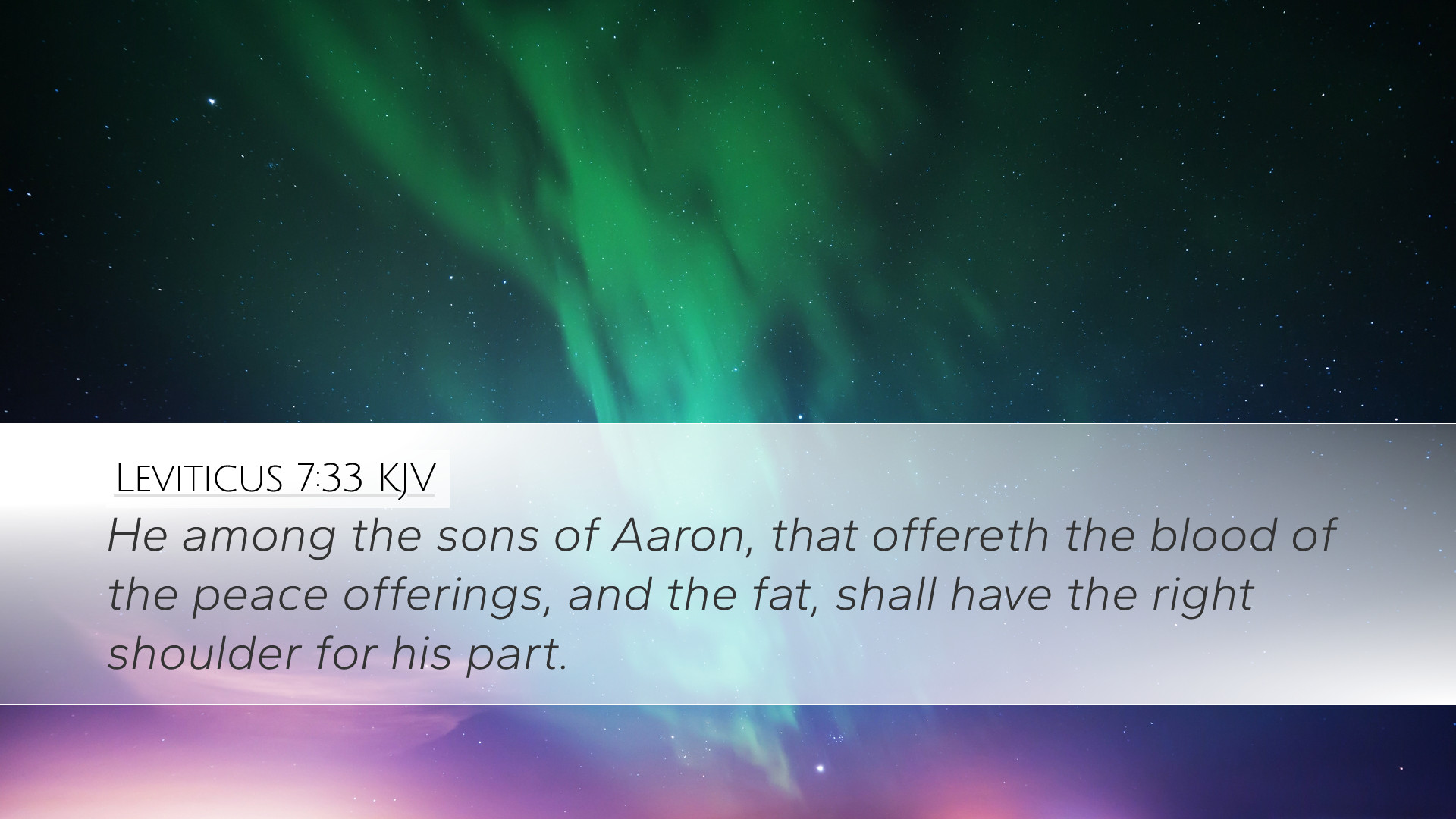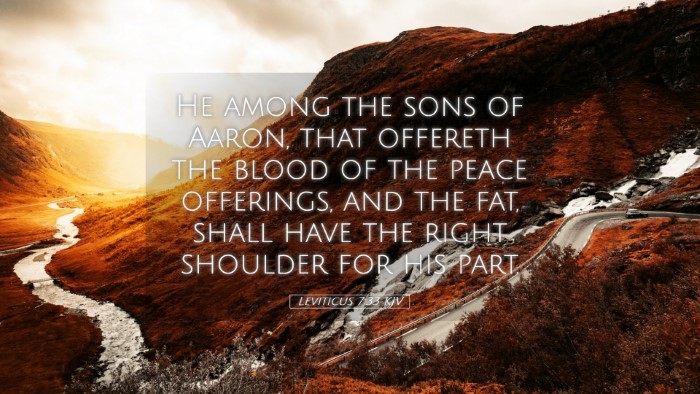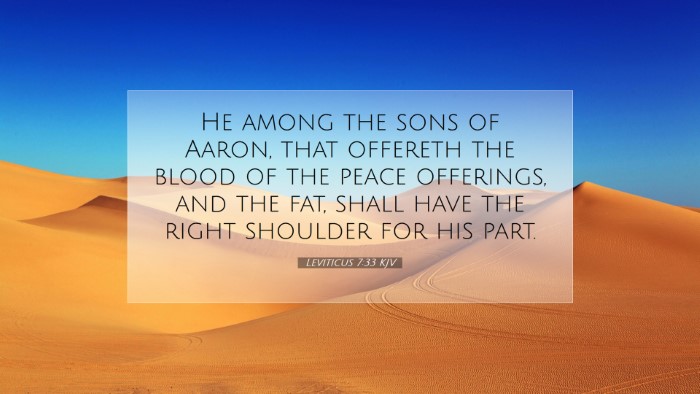Commentary on Leviticus 7:33
Bible Verse: "The one among the sons of Aaron who offers the blood of the peace offerings and the fat shall have the right thigh for his part." - Leviticus 7:33
Introduction
Leviticus 7:33 falls within the guidelines of the sacrificial system established in the Mosaic Law, particularly concerning the offerings related to peace offerings. The verse outlines specific rights and privileges for the priests, particularly those of the sons of Aaron who officiate during these offerings. The insights drawn from various public domain commentaries provide a rich understanding of the theological and practical implications of this verse.
Contextual Understanding
The peace offering, or "shelamim," is one of the five main types of sacrifices in the Levitical system. It was essentially a communal meal that expressed thanks to God. The allocation of portions from these offerings reflects the collaborative relationship between God, the worshiper, and the priests. Matthew Henry commented on the significance of the peace offering as a means of expressing gratitude and communion with God.
Insights from Matthew Henry
Matthew Henry highlights that this offering serves not only as a means of atonement but also as participation in a joyful meal with God. The priest's right thigh symbolizes a share in the blessing, reminding us of the importance of sharing God's provisions amongst those who serve Him. Henry emphasizes that the physical act of eating reflects spiritual truths about communion and fellowship with God.
Albert Barnes' Perspective
Albert Barnes elaborates on the priestly functions and their remuneration derived from the offerings. In the framework of Levitical law, the right thigh being designated for the priest serves to affirm God's provision for those who minister. Barnes notes that the sharing of the sacrifice represents a commitment by God to sustain His servants, thereby underlining the notion that those who engage deeply in spiritual matters also receive God's bounty. This concept fosters a recognition of the spiritual authority that comes with the responsibility of leading worship and ritual.
Comments from Adam Clarke
Adam Clarke remarks on the broader implications of the dietary laws and their significance in the Israelite community. He suggests that these rules served to instill holiness and purity within the worship systems. Clarke points out that the right thigh, being a significant portion, symbolizes strength and vitality, which the priest shares in as a representative of the community before God. Furthermore, he links this practice to the Christian understanding of ministry, wherein spiritual leaders partake in the blessings of their spiritual labor.
Theological Implications
The right thigh's allocation illustrates God's affirmation of the roles of priesthood and communal worship. It reflects the principle that God provides for those who devote their lives to His service. The peace offering, embodying fellowship, is a precursor to the ultimate sacrifice of Christ, who brought peace between God and humanity. As priests in the New Covenant, we are encouraged to partake of God's abundant provision through Christ.
Application for Contemporary Believers
The practical aspects of Leviticus 7:33 urge contemporary believers to recognize the dual role of worship: thanksgiving and fellowship. As part of a community, the right thigh symbolizes the importance of sharing blessings—not just material but also spiritual—with those who preside over the church's spiritual health. Furthermore, this verse calls for a deep appreciation for the priests, pastors, and spiritual leaders who serve tirelessly, highlighting the biblical mandate for supporting those in ministry both materially and through prayer.
Conclusion
In summary, Leviticus 7:33 serves as a vital reminder of the intricate relationship between God, His priests, and the worshipping community. By understanding this verse through the commentaries of Henry, Barnes, and Clarke, we see the multifaceted nature of offerings as acts of communion, affirmation of God's provision, and the establishment of a community rooted in gratitude and fellowship. Believers are encouraged to embrace this understanding as they engage in worship and support those called to lead in spiritual matters.


